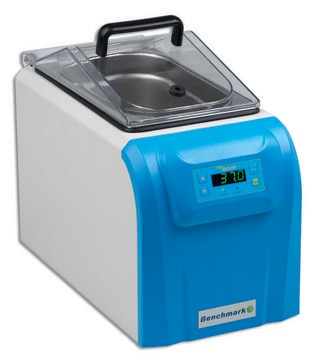920169
Tin (IV) oxide nanosheets
Synonyme(s) :
SnO2 nanosheet
Se connecterpour consulter vos tarifs contractuels et ceux de votre entreprise/organisme
About This Item
Formule linéaire :
SnO2
Numéro CAS:
Numéro MDL:
Code UNSPSC :
12352303
Nomenclature NACRES :
NA.23
Produits recommandés
Application
Tin(IV) oxide (SnO2) nanosheets are an attractive choice for creating stable and high-performance perovskite solar cells due to its wide bandgap, increased electron mobility, and high stability. SnO2 has a higher bandgap (at 3.8 eV), and the conduction band edge exhibits a 300 mV positive shift compared to TiO2, which results in lower photocatalytic activity and higher device stability. The charge mobility of SnO2 is almost two orders of magnitude higher than that of TiO2 and has a lower trap density than TiO2. Finally, SnO2 nanosheets materials have an advantage over typical TiO2 materials in flexible and low-temperature applications.
Mention d'avertissement
Danger
Mentions de danger
Classification des risques
Acute Tox. 3 Dermal - Acute Tox. 3 Inhalation - Acute Tox. 3 Oral - Eye Dam. 1 - Flam. Liq. 2 - Skin Corr. 1B - STOT SE 1
Organes cibles
Eyes,Central nervous system
Code de la classe de stockage
3 - Flammable liquids
Classe de danger pour l'eau (WGK)
WGK 2
Point d'éclair (°F)
49.5 °F
Point d'éclair (°C)
9.7 °C
Certificats d'analyse (COA)
Recherchez un Certificats d'analyse (COA) en saisissant le numéro de lot du produit. Les numéros de lot figurent sur l'étiquette du produit après les mots "Lot" ou "Batch".
Déjà en possession de ce produit ?
Retrouvez la documentation relative aux produits que vous avez récemment achetés dans la Bibliothèque de documents.
Takumi Kinoshita et al.
Nature communications, 6, 8834-8834 (2015-11-06)
The extension of the light absorption of photovoltaics into the near-infrared region is important to increase the energy conversion efficiency. Although the progress of the lead halide perovskite solar cells is remarkable, and high conversion efficiency of >20% has been
Low-temperature SnO2-based electron selective contact for efficient and stable perovskite solar cells.
Song J, et al.
Journal of Material Chemistry A, 3, 10837-10844 (2015)
Mesoporous SnO2 nanoparticle films as electrontransporting material in perovskite solar cells
Li Y, et al.
Royal Society of Chemistry Advances, 5, 28424-28424 (2015)
Notre équipe de scientifiques dispose d'une expérience dans tous les secteurs de la recherche, notamment en sciences de la vie, science des matériaux, synthèse chimique, chromatographie, analyse et dans de nombreux autres domaines..
Contacter notre Service technique







